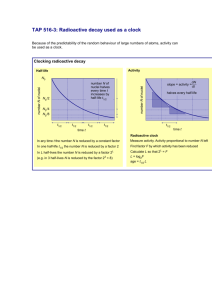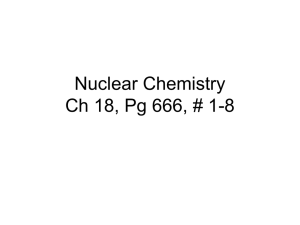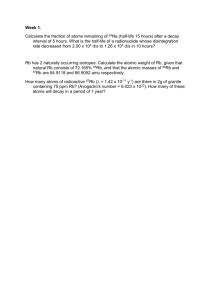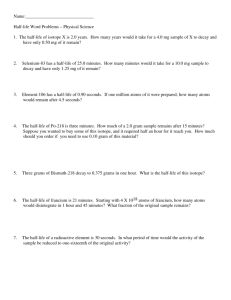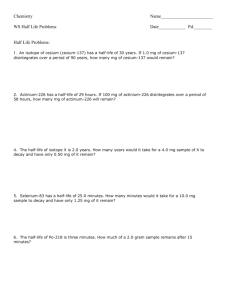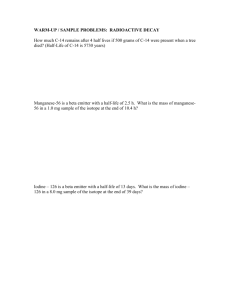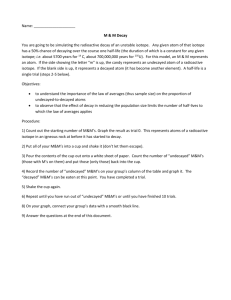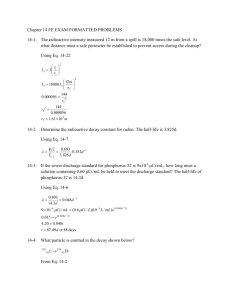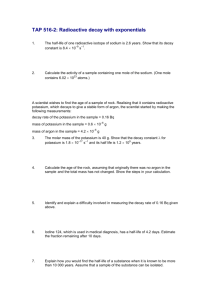Half-Life Gizmo Student Work
advertisement
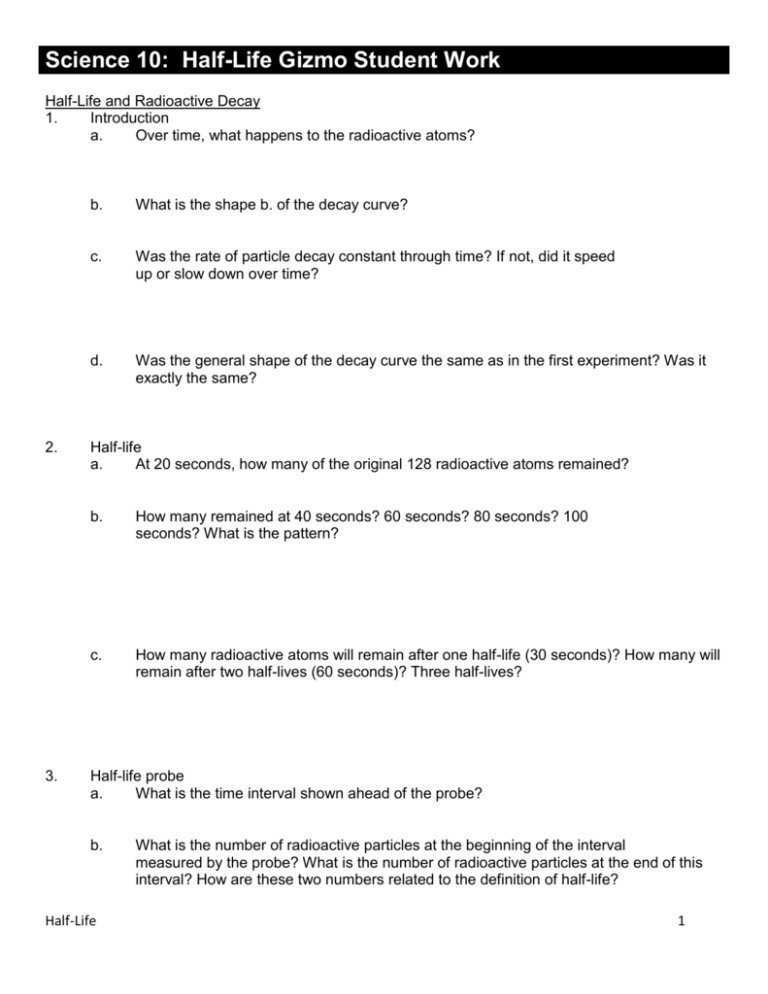
Science 10: Half-Life Gizmo Student Work Half-Life and Radioactive Decay 1. Introduction a. Over time, what happens to the radioactive atoms? 2. 3. b. What is the shape b. of the decay curve? c. Was the rate of particle decay constant through time? If not, did it speed up or slow down over time? d. Was the general shape of the decay curve the same as in the first experiment? Was it exactly the same? Half-life a. At 20 seconds, how many of the original 128 radioactive atoms remained? b. How many remained at 40 seconds? 60 seconds? 80 seconds? 100 seconds? What is the pattern? c. How many radioactive atoms will remain after one half-life (30 seconds)? How many will remain after two half-lives (60 seconds)? Three half-lives? Half-life probe a. What is the time interval shown ahead of the probe? b. Half-Life What is the number of radioactive particles at the beginning of the interval measured by the probe? What is the number of radioactive particles at the end of this interval? How are these two numbers related to the definition of half-life? 1 c. 4. Does the same pattern persist? Random decay a. How close was the actual decay to the theoretical? b. You can paste the two pictures here if you are doing this electronically, otherwise you can paste them into a document to print out by the end of class. c. You can paste the two pictures here if you are doing this electronically, otherwise you can paste them into a document to print out by the end of class. In which graph was the decay curve closest to the theoretical decay? d. In general, in which experiments were the actual results closest to the theoretical curve? e. Based on what you have seen, how close will the decay of billions of atoms be to the theoretical decay? Justify your answer. Radiometric Dating 1. Radiometric dating a. Based on the graph, what is the approximate half-life of isotope A? b. What is the exact half-life of isotope A? c. Does this change the half-life of isotope A? Confirm this by experimenting with other starting numbers. d. What is the half-life of isotope B? e. Half-Life Approximately how old is the sample? 2 f. About how old is a sample with 75 radioactive atoms and 53 daughter atoms? 2. Mystery half-life a. Please do 3 or 4 of these. 3. Rocks and fossils a. If this is true, what is the age of an artifact with 50% radioactive atoms of isotope B? b. What is the estimated age of a sample with 25% radioactive atoms of isotope B? 12%? 6%? c. About how old is a sample with 72% radioactive c. atoms of isotope B? Half-Life 3
